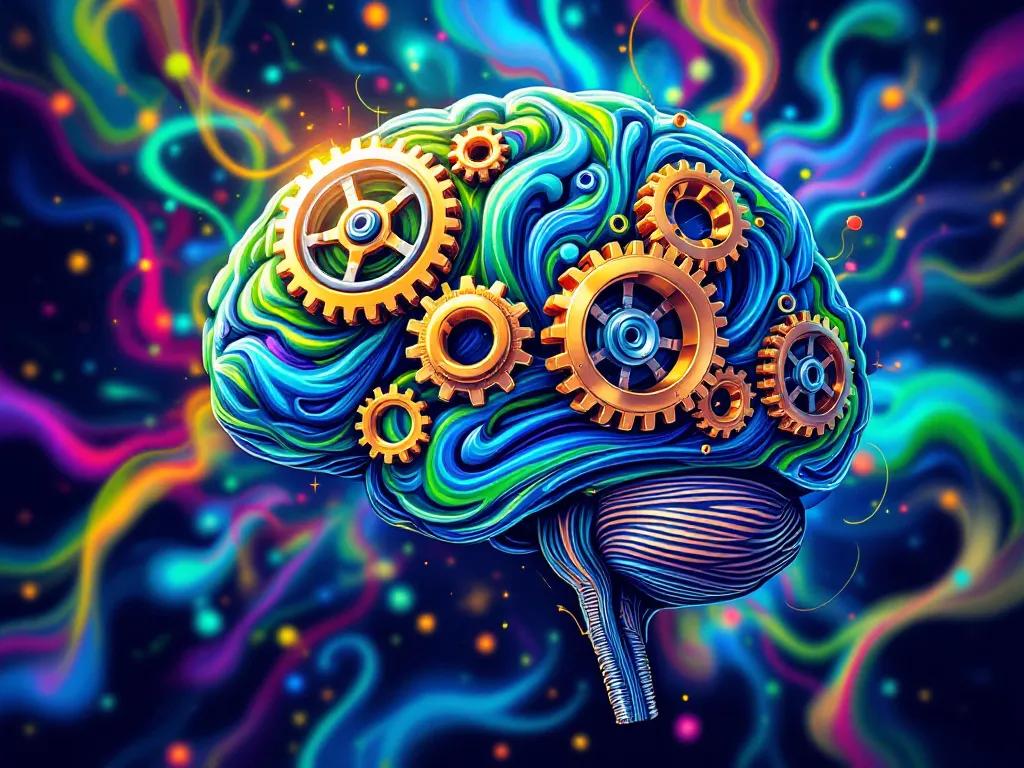Unlocking the Power of Trigger Habits: Boosting Productivity and Well-being

Last updated: November 17, 2024
Discover the secrets of trigger habits—a catalyst for automatic and efficient behavior. Learn how to integrate personalized triggers into your daily routine to enhance productivity and improve mental and physical wellness.
Unlocking the Power of Trigger Habits: Boosting Productivity and Well-being
Introduction
Have you ever wondered why some people seem to accomplish more in a day than others? It often comes down to habits, those automatic behaviors we perform without even thinking. Habits are the foundation of human behavior, shaping how we live, work, and play. But there's a special kind of habit called a "trigger habit" that can be a game-changer for boosting productivity and well-being. In this blog, we'll explore what trigger habits are, why they matter, and how you can use them to improve your life.
Trigger habits resemble a magical button in your brain that, when pressed, initiates a sequence of actions. They’re the cues that kickstart behavior patterns, helping you navigate through your day more effectively. Understanding trigger habits can unlock new levels of efficiency and mental clarity, aiding you in becoming the best version of yourself. We'll delve into the science behind habit formation, practical applications, and strategies for personal and professional growth. So, let's embark on this journey to uncover the secrets of trigger habits!
Understanding Trigger Habits
What are Trigger Habits?
Trigger habits differ from regular habits in that they rely on a specific cue or signal to initiate a behavior. Imagine walking into a dark room and automatically reaching for the light switch. The darkness is the trigger, and turning on the light is the responding habit. Trigger habits work because our brains love efficiency and shortcuts. When the brain recognizes a trigger, it follows a pre-determined path without the need for decision-making, saving us precious cognitive resources.
Research into behavioral psychology explains how our body responds to these cues. For instance, a study published in the "Journal of Behavioral and Brain Science" https://www.example.com, notes that trigger habits engage specific neural pathways that reinforce repeated behaviors, making them a potent tool for habit formation.
Benefits of Trigger Habits
Trigger habits have a profound psychological and neurological impact. By embedding these cues into our daily routines, we can enhance our efficiency and focus. Successful trigger habits—like drinking a glass of water every morning to hydrate and energize—can lead to improved daily performance.
Moreover, these habits can significantly benefit well-being. By deliberately setting up positive trigger habits, you can transform your mindset and improve your mental and emotional health. From using a specific playlist to kickstart your workout to sipping tea as a signal to start winding down for the day, these triggers can structure your life around positive goals.
Trigger Habits vs Regular Habits
While regular habits are valuable, trigger habits are more structured due to the influence of specific cues. The critical part of trigger habits is the "trigger" itself, which is instrumental in habit loops—a concept we'll explore further within the science of habit formation. These triggers act as reminders, aiding in habit recollection and execution, thus having a more significant impact on productivity and well-being.
The Science Behind Habit Formation
Habit Loop and Its Components
Understanding the habit loop is crucial for forming productive trigger habits. A habit loop consists of three components: cue, routine, and reward. The cue is the trigger that begins the habit. For example, a particular time of day or an emotional state might prompt a behavior. Next is the routine, the behavior you perform. Finally, the reward is what you get from the routine, such as feeling refreshed after a morning run. Trigger habits seamlessly fit into this loop by providing consistent cues that lead to productive routines and satisfying rewards.
Neuroplasticity and Trigger Habits
On a deeper level, trigger habits leverage the brain's amazing capacity to change—known as neuroplasticity. This term refers to how experiences and repeated behaviors can alter and strengthen neural pathways. By consistently responding to a trigger with a positive action, you’re essentially rewiring your brain to make this behavior more automatic over time. It's akin to blazing a new trail through a forest; the more you walk it, the clearer and more defined it becomes.
Trigger Habits for Increasing Productivity
Identifying Effective Triggers
To boost productivity, it's essential to identify triggers that work best for you. Common productivity-enhancing triggers might include starting the day with a warm beverage to mentally prepare for work or using specific sounds like a focus playlist to commence study sessions. These cues signal your brain that it’s time to switch gears and get productive.
Personalizing your triggers is crucial because what works for someone else might not work for you. Whether it's setting a specific time to check emails or having a dedicated workspace devoid of distractions, finding what sparks your peak performance is key.
Implementing Trigger Habits in Work Environments
Imagine an office designed to foster productivity. Trigger habits, like starting meetings with a brief meditation or using a specific pen for taking notes, can be woven into work settings to enhance focus and teamwork. Leaders can further enhance productivity by promoting a culture of positive habits, such as celebrating small achievements to maintain team motivation.
Creating a productive environment transcends physical space, involving the establishment of routines that team members can rely on, which boosts overall productivity and workplace satisfaction.

Trigger Habits for Enhancing Well-being
Emotional and Physical Well-being
Trigger habits aren't solely for productivity; they're essential for well-being. Establishing habits that promote emotional health can help manage stress and enhance mental clarity. For instance, deep breathing exercises when anxious or keeping a gratitude journal can help shift your mood and foster a positive mindset.
Physical well-being also reaps the benefits of trigger habits. Triggered cues, like donning workout clothes first thing in the morning, can motivate regular exercise. Similarly, scheduling meal times or maintaining a consistent bedtime supports healthy body rhythms, crucial for overall health.
Building a Routine Around Well-being
Developing a routine filled with trigger habits can greatly enhance your well-being. Morning routines that incorporate activities like stretching or meditation set the tone for a positive day. In contrast, bedtime rituals such as reading or listening to calming music can signal your body that it’s time to wind down, ensuring restful sleep.
Incorporating mindfulness and gratitude practices within your routine can significantly impact your mental health. Utilizing trigger habits to remind you to pause and reflect can keep you grounded and focused amidst the daily chaos.
Practical Tips for Developing Trigger Habits
Starting with Small Changes
When beginning, focus on making small, manageable adjustments. Consider starting with one trigger habit, such as setting a reminder to stretch every hour. These minor shifts are easier to manage and provide immediate rewards, bolstering motivation.
Tracking your progress is also important. Use a journal or app to monitor your consistency with new habits. Regularly recognizing your achievements is motivating and reinforces the stickiness of the habit in your routine.
Adapting to Setbacks
Setbacks are a natural part of any journey. When building trigger habits, it's pivotal to view these as learning experiences rather than failures. Perhaps your initial trigger wasn't strong enough or didn’t seamlessly integrate into your existing routine. By tweaking these cues and learning from previous attempts, you can continue refining and improving your habits.
Overcoming Challenges in Habit Formation
Common Barriers to Establishing Trigger Habits
Developing trigger habits isn't without its hurdles. Time constraints, lack of motivation, and resistance to change are common challenges. Overcoming these requires patience and persistence. Understanding psychological obstacles, such as fear of unfamiliar routines, can also facilitate transitions to new habits.
Tools and Techniques for Resilience
Employing tools like habit-tracking apps can provide structure and accountability. Journals also offer a venue for reflection and self-assessment. Engaging an accountability partner or joining support networks can offer external motivation, helping push through challenging phases and maintaining discipline.
Case Studies and Real-life Examples
Success Stories
Let’s explore some inspiring stories. John, a student, successfully utilized trigger habits to enhance his study routine. Each time he entered the library, he triggered his study mode by listening to classical music. This consistent trigger cue transformed his productivity levels.
Lessons Learned
From such stories, we learn that the most effective trigger habits are personalized to fit individual lifestyles. John’s story illustrates the power of consistency and adapting trigger habits to personal preferences, underscoring their role in achieving sustained improvement.
Conclusion
In wrapping up, we've journeyed through the science and application of trigger habits, understanding their potential to revolutionize our productivity and well-being. By embracing and customizing trigger habits, we can cultivate environments conducive to personal growth and professional success. Remember, the power lies in identifying what works for you and continuously adapting. Happy habit forming!
To continue exploring and refining your personal growth strategies, check out our related blog on Mastering Habit Stacking and learn how Mindful Productivity can structure your day for maximum impact.